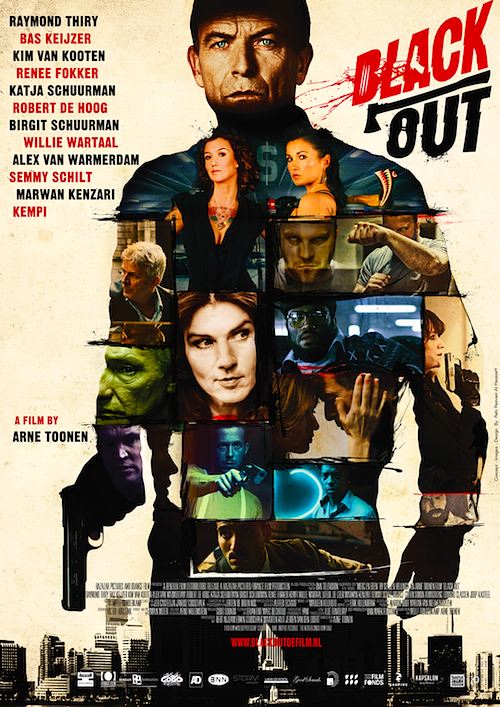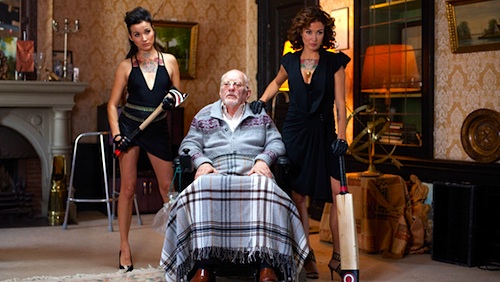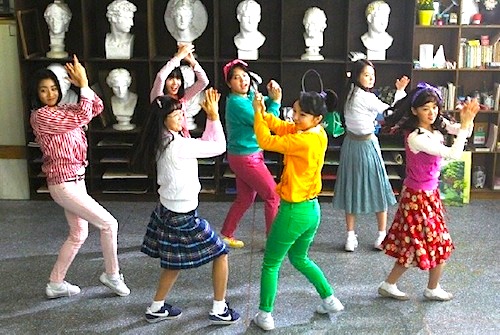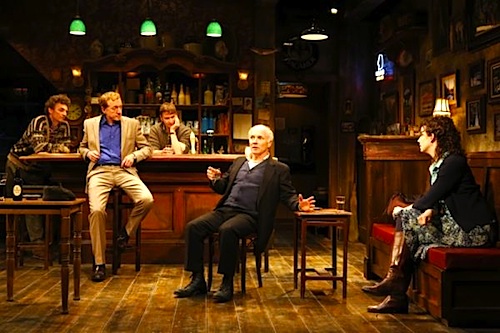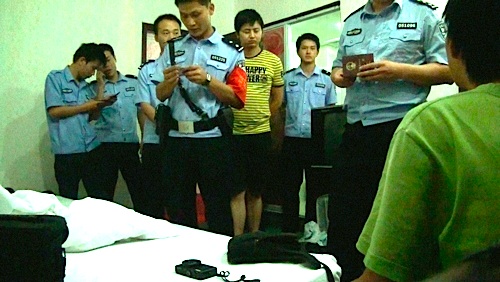
By Joe Bendel. When these cops show up to “inspect” your hotel room, it is a case of pure intimidation. It is also something of a badge of honor in today’s China. Film producer and festival impresario Zhu Rikun was the target of such a police roust, but he had the presence of mind to keep his camera rolling. His resulting short documentary The Questioning screens with Ai Weiwei’s thematically similar Disturbing the Peace as part of MoMA’s continuing Chinese Realities/Documentary Visions film series.
Evidently, it takes six cops to ask for Zhu’s papers. Surely being familiar with Teacher Ai’s experience, Zhu handles himself masterfully. He is distinctly uncooperative, but never gives them anything they could describe as provocative. The entire episode degenerates into absurdist theater, with Zhu refusing to answers basic questions, instead referring his interrogators to the very documents they hold in their hands. Viewers can well imagine the flustered enforcers reassuring themselves how badly they shook up Zhu once they retreat from his room.
Indeed, Questioning plays like a revised scene from the ill fated Chengdu trip in Disturbing, but unfortunately, Ai Weiwei and his team were not so deft at handling their harassers. Teacher Wei would take a shot to the head, which would eventually lead to a serious medical crisis, and his assistant would be held incommunicado in gross violation of China’s (ostensible) law.
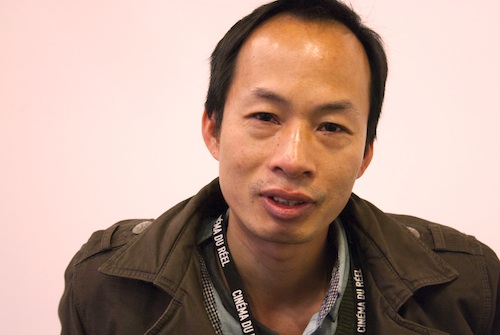
In her insightful post-screening Q&A, Ai Weiwei: Never Sorry director Alison Klayman really put her finger on the phenomenon both films document. Both Zhu and Teacher Ai could be so assertive in confrontations with authority figures because there is no rule of law to govern such encounters. As a result, the strongest personality has an advantage. Ironically, that gives Teacher Ai the advantage. And Zhu is certainly no shrinking violet, either.
Disturbing the Peace is a film everyone should watch to understand contemporary China. Zhu’s The Questioning is also quite valuable. It is short, but extremely telling. One could argue he does not do much directing, per se, merely turning on the stationary camera his surprise guests never notice -but as a cinematic journalist, he is incredibly gutsy. (However, one might say that his overly large cast is lousy at taking direction.) Both highly recommended films screen together again (sans Klayman) this coming Saturday (6/1), concluding Chinese Realities at MoMA.
Posted on May 28th, 2013 at 12:33pm.
